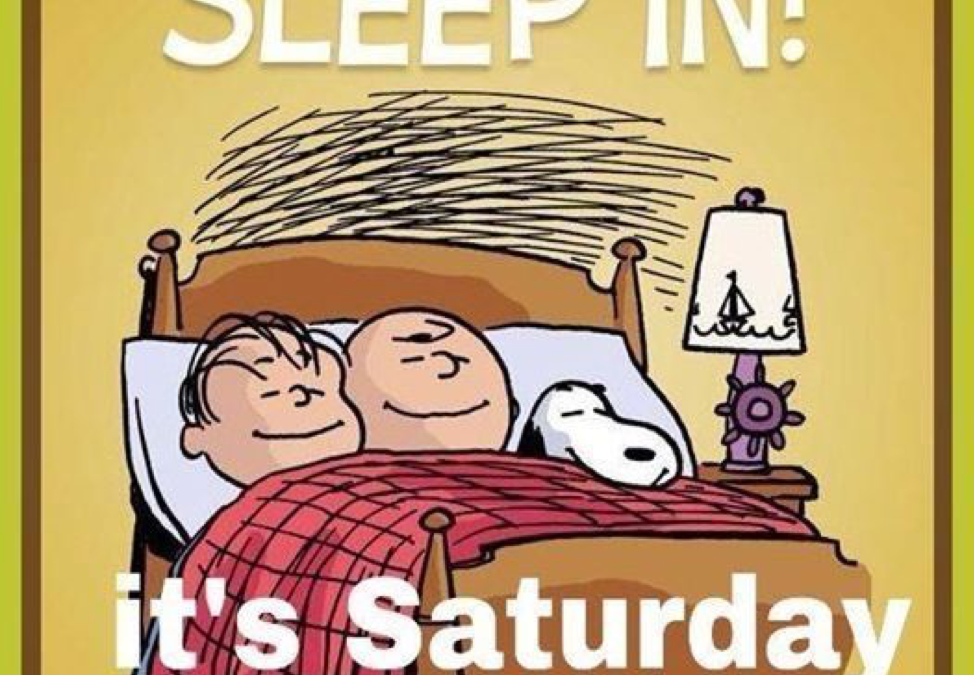Weekend sleep warriors- Will this work for me?

With work deadlines looming, many of you push yourself to the point of exhaustion during the week. “I can sleep on the weekends”. Does that statement sound familiar? Many of you weekday “burn the midnight oil” types plan to make up for lost sleep on the weekends. Perhaps this idea itself needs to be put to rest, especially if you are trying to lose weight.
Getting a good night’s rest has many health benefits, from boosting your mood, lowering your blood pressure, sharpening your brain, to improving immune function. Of particular interest, is sleeps role in weight loss. If you are trying to lose weight getting sufficient sleep is essential. A lack of sleep directly affecting your hunger hormones causing an increase ghrelin, the hormone that stimulates appetite and lower levels of leptin, the hormone that suppresses appetite. Studies show that sleep-deprived individuals have a bigger appetite and tend to eat more calories. The Sleep Research Society and American Academy of Sleep Medicine recommend that adults aged 18–60 years regularly obtain 7 h or more of sleep per night to promote optimal health. It is estimated that ∼35% of American adults report sleeping less than the recommended 7 h per night, ∼30% report sleeping less than 6 h per night, and over 40% of active military personnel report sleeping less than 5 h per night. As a result, the bad habit of catching more Z’s on the weekend, in an attempt to recover from the workweek sleep loss is common.
Findings from the Global Burden of Disease study indicate that 603.7 million adults were obese in 2015. Researchers at the University of Colorado took a look into how inconsistent sleep patterns may be contributing to this epidemic. They wanted to see if you could in fact “make up” for a lack of sufficient week day sleep on the weekends. Findings were published in Current Biology .
“Our findings suggest that the common behavior of burning the candle during the week and trying to make up for it on the weekend is not an effective health strategy,” said senior study author Kenneth Wright, director of the UC-Boulder Sleep and Chronobiology Lab.
“In the end, we didn’t see any benefit in any metabolic outcome in the people who got to sleep in on the weekend,” said lead author Chris Depner, an assistant research professor of Integrative Physiology. In at least one significant way, the weekend sleepers had an even worse outcome. When researchers examined the three different groups of the study, the group that slept five hours each night experienced a 13% decline in whole-body insulin sensitivity, while those in the weekend-sleeping group experienced a 9 to 27% decline, with particularly poor sensitivity in their liver and muscles. This is concerning because poor skeletal-muscle insulin sensitivity is a major driver of type-2 diabetes.
“It could be that the yo-yoing back and forth – changing the time we eat, changing our circadian clock and then going back to insufficient sleep is uniquely disruptive,” said Wright.
In conclusion, it is important to consider many factors when trying to implement behavior change strategies to weight loss. Maintaining a consistent sleep schedule is proving to be just one of the many behaviors, that has been shown to be effective in battling the war on obesity. If you or someone you love is struggling to manage weight related issues, contact us at behaviourchangecenter.com for more tips and strategies to help you overcome this health risk. We believe that once armed with information and education you can be the change you want to see in your life.

